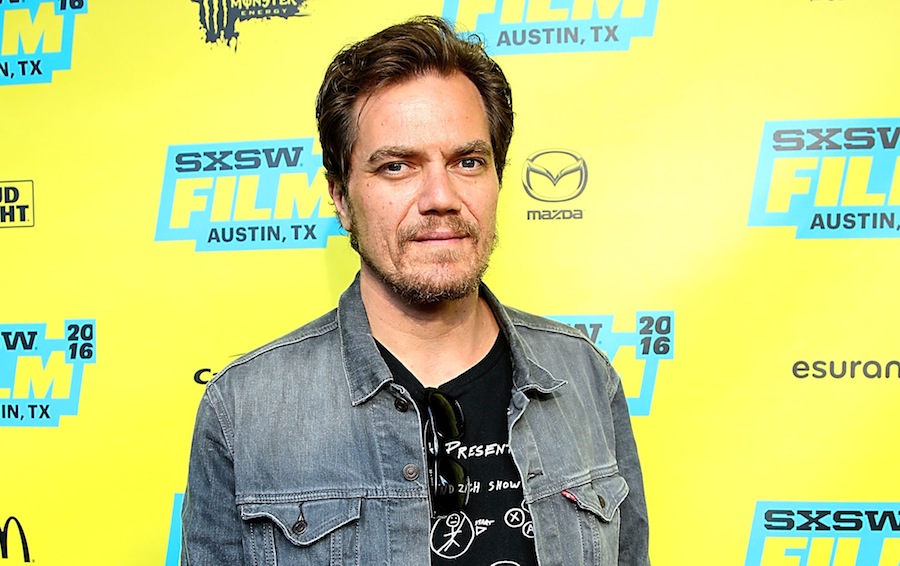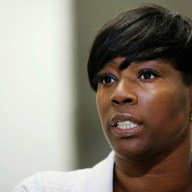Early on in our conversation, Michael Shannon stands up, mid-response, to close the door the publicist forgot to shut. It’s a hard moment to describe, but it’s both strangely determined and vaguely comical — as though he was a high school principal about issue me a lecture. Like many of the characters he plays, the actor has a kind of shy intensity; he seems like the strong but silent type, but he can rattle off thoughtful answers while still appearing withdrawn. That tension is part of what makes the actor’s quieter performances — and even his louder ones, as in “Man of Steel,” “99 Homes” and his Oscar-nominated turn in “Revolutionary Road” — so fascinating. His turn in “Midnight Special” is one of the less talky ones. He plays a former cult member trying to protect his son (Jaeden Lieberher), who has mysterious superpowers that have made him a target of both government officials and religious fanatics. It’s the fourth film Shannon, 41, has made with filmmaker Jeff Nichols, a fellow Southerner, after “Shotgun Stories,” “Take Shelter” and, briefly, “Mud.” But that doesn’t mean they’ve fallen into a comfortable groove. RELATED: Interview: Kirsten Dunst talks “Midnight Special” and preferring TV to indies This is definitely a film that speaks, sometimes uncomfortably, about the bond between parent and son. Being a father yourself, how did you react to the script? Your character, Roy, winds up forced to do some things to protect his son that could be called, for lack of a better word, unethical. RELATED: Interview: Jaeden Lieberher and Clive Owen talk playing father and son in “The Confirmation” You’ve played characters who run at the mouth, but Roy is definitely the silent-but-deadly type, even as he’s not Cro-Magnon. He has a lot going on in his head. You’ve spoken in the past about always feeling nervous and doubtful as an actor. Does having made four films with Nichols make you feel more relaxed? Still, have you developed a kind of shorthand? RELATED: Interview: Shailene Woodley says “Divergent”‘s Tris doesn’t feel comfortable in a dress In all of his films there’s a tension between naturalism and something more fantastical, even if it’s just “Shotgun Stories” being a kind of genre film. It’s interesting to see the supernatural melding with real life.
When you have a child, you’re bringing another person into this world. It’s not your person; it’s another person. You definitely feel connected to them. There’s a bond there. But they’re also their own entity. That’s a hard thing to wrap your head around. That’s what drew me to the story.
I don’t know what to tell you. I understand it. It’s his kid, you know? If somebody was threatening to take one of my children away, I don’t think there’s anything I wouldn’t do to stop them. I didn’t look at him and think, “Wow, this guy is really crazy. Why would he do that?” It made sense to me. It’s a desperate and strange situation he’s in. If he was given the luxury of time and more information, maybe he would act differently. But he doesn’t. He has to act based on the love for his son and the faith that he’s doing the right thing. I don’t think what he’s doing is based on any sense of ethics. He’s not philosophical about it. There’s an urgency to it that’s beyond contemplation.
This is a person that Jeff and I really understand: this Southern man who’s full of thoughts and feelings but who’s not articulate, not able to express himself very well. So he expresses himself through his actions, what he does, the decisions he makes. That’s his identity. That’s something I saw a lot growing up. Jeff probably did, too.
I don’t know. Jeff and I are interested in always finding a greater challenge than the one before. We both push ourselves. My nervousness comes from knowing how much potential there is — knowing that no matter what you do you can do more. There’s always more to be found. You know that no matter what you do, the next day you’re going to think, “I didn’t do this, I could have done that.” It’s inevitable. I always put a lot of pressure on myself to try and be as aware and awake as possible. Jeff does the same thing. Our bond is based on our tenacity. It’s not based necessarily on comfort. The comfort we get from each other is that we know the other guy is working as hard as we are.
We don’t have a lingo or anything. Making “Midnight Special” was very different from making “Take Shelter” or “Shotgun Stories” or the little thing I did in “Mud.” We can read each other. Sometimes it’s still difficult. What Jeff is looking for is so specific. I was just doing his fifth movie, “Loving.” I have a small part in it; I was only there for a day. We kept doing the same shot of me walking up to someone and introducing myself over and over and over again, because Jeff had a specific thing he wanted. I think anybody who’s trying to do something miraculous, no matter how much time you spend with them, it can still be difficult. But there’s a bond. The bond isn’t that it gets easier every time we do something; the bond is we try harder to do something even more challenging.
I mean, why not? We get enough of it every day, the pedestrian experience in our own lives. Why not extrapolate on that in a film, take it to a different level? That’s why art exists. It’s to elevate our awareness. I don’t think you can do that by replicating life all the time. There’s so much focus on art and is it naturalistic? Does it seem like the way it would be in real life? It’s like, who cares? What’s so great about watching real life for two hours? It’s more about [Nichol’s] lyricism that I respond, that poetry. Jeff’s films are like poetry to me.
Michael Shannon thinks realistic films are boring

Getty Images
Follow Matt Prigge on Twitter @mattprigge


















